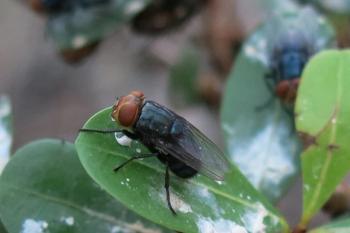
MSU research zeroes in on EPM
East Lansing, Mich.-At least six of every 10 horses in the state of Michigan have been exposed to Sarcocystis neurona, the parasite responsible for Equine Protozoal Myeloencephalitis (EPM), according to study results from researchers at Michigan State University.
East Lansing, Mich.-At least six of every 10 horses in the stateof Michigan have been exposed to Sarcocystis neurona, the parasite responsiblefor Equine Protozoal Myeloencephalitis (EPM), according to study resultsfrom researchers at Michigan State University.
Researchers at the Emerging Parasitic Diseases Laboratory at MichiganState University, headed by Linda Mansfield, VMD, Ph.D., launched the EPMstudy after being approached by horse producer groups within the state wholisted EPM as their number one disease concern.
According to Mansfield, the study proved that the most significant contributingfactor to the prevalence of EPM were opossums.
"There was this dramatic correlation with the prevalence of opossumsand the prevalence of the disease," Mansfield tells DVM Newsmagazine."It is very clear that the majority of horses are living in the areaswith the majority of opossums in the southern tier of the state. Those havebeen traditionally the horse rearing areas."
The presence of EPM antibodies in horses was less common in colder areasin the state, which had less opossums.
Probable reasons for exposure include increased exposure to pasture.Factors such as farm size, animal gender, hay types or exposure to waterseemed to have no influence on test results.
Researchers tested 1,121 horses, and of those, none were presently beingtreated for EPM and only 10 were diagnosed by a veterinarian within thelast year.
Newsletter
From exam room tips to practice management insights, get trusted veterinary news delivered straight to your inbox—subscribe to dvm360.





